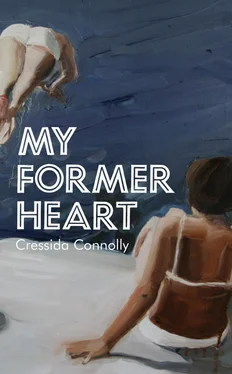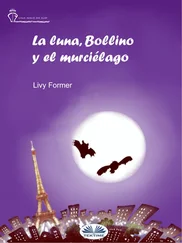Even before she had opened her eyes, Iris could sense the brightness at the window, a weight to the light which could only come from snow. The room was cold, much colder than the nights in Cairo had been, but Iris didn’t feel the cold despite her slender frame. The old hotel had been quite empty when they’d first taken it over a few months earlier, hadn’t even had the benefit of electricity or running water. During the big snowstorm, before she’d arrived, they’d run out of kerosene for the lamps. But supplies had begun to arrive and the place was taking shape. They had furnished her room adequately, even if the furniture was shabby. There was a writing table in front of the window, which would do as a dressing table too; and a good comfortable chair with a footstool, set by a low table with a rather dingy lamp; and plenty of clothes hangers in a cupboard which smelled vaguely of cloves. Not that she had all that many clothes with her, certainly not enough warm things for up here in the mountains. She’d have to write to Jocelyn, the friend with whom she’d left a key to the London house, and get her to send some things out: jerseys and her tweed coat and perhaps a couple of dresses for the evenings. One of the things Jimmy was keen for her to do, once they got the place fully established, was to organise entertainments for the men, music and suchlike. It wouldn’t hurt to have a frock or two.
Jimmy was a friend of Edward and Bunny’s, from Cambridge days. It had been pure chance running into him in Cairo. Iris had had no idea he was out in the M.E., although one came across so many familiar faces out here – people one used to run into, for ever ago, at London parties – that she hadn’t been the least bit surprised to see him. Jimmy had always been one for the most tremendous schemes, and mad on skiing of course. Terrifically good at it too. In Cairo he’d told her that he was recruiting for a mountain-training school in the Lebanon. It was just the sort of ambitious, almost foolhardy scheme one would have expected of him. When he mentioned that he was looking for someone to help with the office side of things – to go through lists of men with experience of cold-weather conditions, get in touch with them, order equipment – she at once proposed herself. ‘Done,’ he’d said straight away, grinning. He didn’t enquire as to the particulars of why or how Iris had got to Cairo, nor what she was doing there in the first place. He didn’t ask if she’d ever done this sort of work before, or any work. He wasn’t that sort of person.
The Cedars was on a plateau surrounded by a horseshoe of mountains, all covered in snow. Far in the distance, six thousand feet down beyond the valley, was a glimpse of the Mediterranean. The old hotel took its name from a wood nearby, where some of the trees were said to be more than a thousand years old. There was a wall around it to protect the trees. If Iris had thought of the Lebanon at all before now, it would always have been in connection with the cedars which reached their long wide arms across familiar English lawns, shading the grass, their branches the colour of green baize. But here, in their homeland, nearly all the trees had been cut down, all but this small wood near the hotel. Great swathes of snow collected in their outstretched branches, then fell when the weight became too much for the trees to support. The sound was just like bombs, exploding in the distance. Iris had thought it was a raid the first time she’d heard it, until Jimmy put her right.
Jimmy told her that you could spend the morning skiing up here and then drive down to the coast to bathe in the sea that very afternoon. Not that his notion had much opportunity to be tested, when he and the men were out for almost eight hours a day, sometimes overnighting in tents further up in the mountains, coming back exhausted and frozen. Iris did get down to Beirut every few weeks, but she didn’t bathe, although she’d have liked to. The women there didn’t seem to; there were only men with fishing nets and young boys playing on the beach.
There were already signs of spring down in the city, the almond trees in blossom. It wasn’t so much fun as Cairo of course, but one could dine reasonably well and buy French scent and other treats, and go dancing if one was overnighting. Generally one or other of the officers took her to lunch at the French club, where they had heavenly food: there were even prawns in that delicious pinkish sauce, and sole meunière. Jimmy told her that he’d caused the most frightful embarrassment the first time he’d been to the club. British officers hadn’t been using the place then, but because he’d been doing some liaison for one of the Free French generals he didn’t see why he shouldn’t. He’d gone in and asked for a table, but once he was sitting down he noticed a deathly hush had descended. It turned out he was sitting in the Vichy half of the dining room. He’d been asked to move to the Free French side, and only then had conversation resumed at the other tables. Now the place was frequented by all the English officers. Some of them gave Iris to understand that they disapproved of the ski school. Why should Jimmy – and the Aussies he’d somehow managed to inveigle his way among – be allowed to create a private holiday camp in the mountains? Iris laughed. ‘You should come up,’ she told them. ‘Anything less like a holiday could scarcely be imagined.’
True though this may have been for the men who trained there, to Iris the place did provide a kind of extended vacation, a break from thinking about what to do with her life. Not that she didn’t work, and work hard. There was a great deal to get done: wood for the skis to be ordered from Turkey, supplies to be organised, the men’s letters to send out, reports to be typed up. The whole building smelled as if it was constantly being polished – a familiar and comfortingly English church-hall smell of beeswax and paraffin – but the floors remained scuffed, for these ingredients were used only to make wax for the skis. The furniture was anyway too makeshift to merit polishing. One of the tasks which fell to Iris was to ensure that there were always adequate supplies to make the ski wax. Graphite was another ingredient, which it eventually became impossible to track down; in the end, she’d had to request a huge pile of gramophone records, which they’d ground down, to add to the wax mixture. To Iris this seemed a pity, a waste of music. One of the officers had a wireless, which picked up music stations from Germany and Italy, and before long Jimmy managed to obtain a gramophone from somewhere. When further boxes of gramophone records arrived, Iris kept back some of the better ones to play in the evenings.
Iris often had headaches from spending so long at her desk. But she was glad to be tired and found that she no longer felt restless or on edge. She didn’t have to fret here, as she had at home, about what would happen when Edward came back, how she would explain herself. And it was better for Ruth to be with her grandmother, away from the damp foggy city, in the fresh air; and away from the danger of the city of course. Several people – including her own mother – had let it be known that they’d thought it selfish of Iris to keep the little girl in London with her during the bombing raids.
A couple of doctors had been imported to the school, since fractures and sprains were expected to be a daily occurrence, especially among men who’d never skied before. In fact hardly anyone hurt themselves: Jimmy’s theory was that it helped to actually climb up a mountain before you skied down it, because that way you were strengthening the muscles first. He believed that it was because there were no ski lifts here that people didn’t seem to get hurt as they did in the Alps. But they did get sunburn. Snow blindness too. The Australians in particular were averse to using protective cream or dark glasses. Sometimes at night Iris was kept awake by their horrible screams of pain from the hospital ward across the courtyard.
Читать дальше












